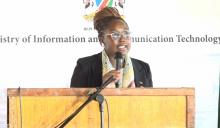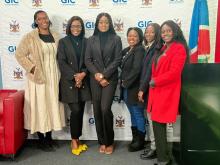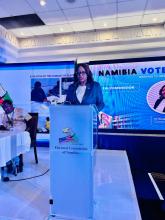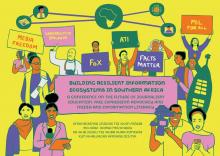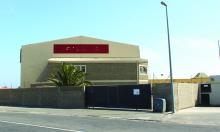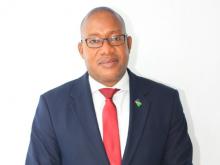ICT Minister Theofelus debunks Kunene network tower land grab misinformation
Breadcrumb
Minister of Information and Communication Technology Emma Theofelus has expressed disappointment over reports that some individuals are misleading traditional leaders in the Kunene Region by claiming that the ministry’s network tower expansion coverage efforts are intended to grab land.






